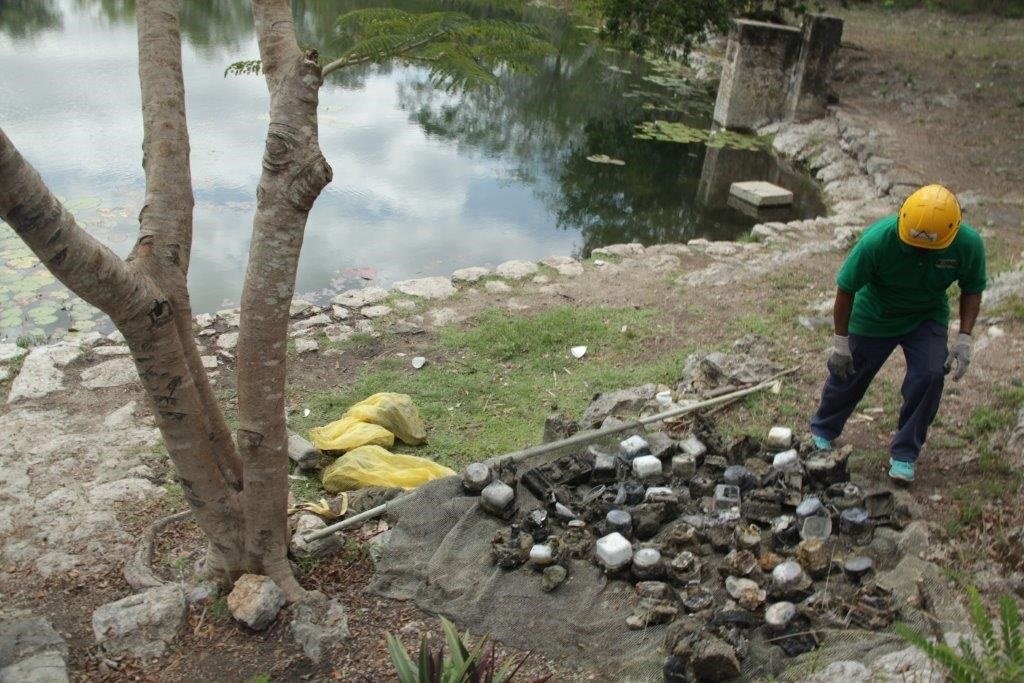Yucatecan speleologist and cenote expert Sergio Grosjean Abimerhi lamented the lack of action by the CFE as a result of the 117 electric meters found in a cenote in the municipality of Kopomá.
In a bulletin, he recalled that in December 2020, as part of a sanitation program for the cenotes, in coordination with the Bepensa foundation, he and other collaborators extracted 117 meters in the Chen Ha cenote, which they handed over to the federal agency.
“A month ago we carried out the cleaning of the same cenote again and in the presence of Commission officials we extracted another 94 devices, and through a statement the CFE informed that it would carry out an investigation in this regard.

“However, and regardless of this, these devices have been underwater for decades and possibly the perpetrators of this natural disaster are no longer with us,” Grosjean said.
“Therefore, it is essential to extract those that could remain, as there could be hundreds more down there, we do not know the number and magnitude of the problem because these artifacts are found under the sediment and it is only possible to find them with sophisticated metal detectors,” he continued
“This type of equipment (the meters) have highly polluting components such as copper, bromine, lead, among others, which are causing environmental damage of unimaginable proportions,” the speleologist declared.
“As we discussed at the time, we found dead fish, in other cases only skeletons and crocodile skulls, which suggests that they did not die naturally,” he added.
“We consider it necessary to carry out in-depth water quality studies in which the following parameters are considered based on the suggestion of specialists in this type of study, which includes mercury, tin, vanadium, nickel, cadmium, lead, arsenic, chromium, and iron”, Grosjean underlined.
“Unfortunately, after the company statement we have not heard from them again and I think it is their responsibility to extract them or, where appropriate, finance both the studies and the extraction since it would be very expensive to collect them because it requires heavy machinery. and special equipment for this type of project. Hopefully this agency reconsiders and fulfill their social responsibility,” he concluded.


